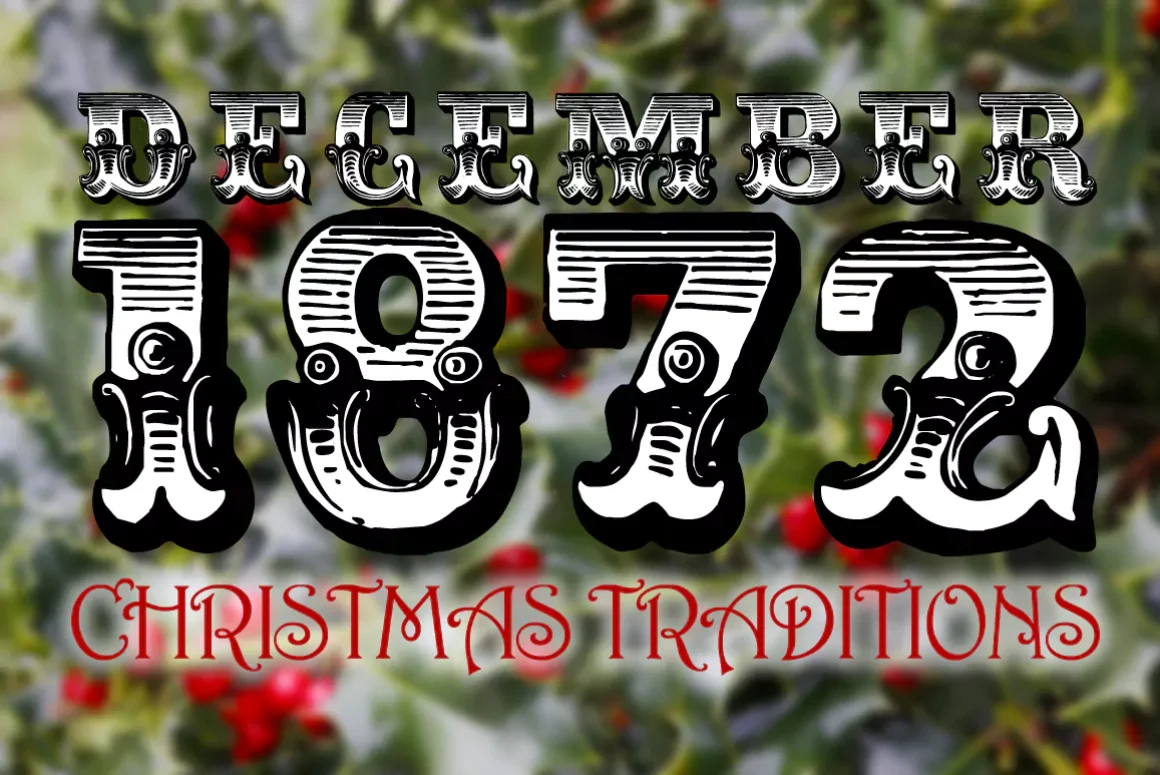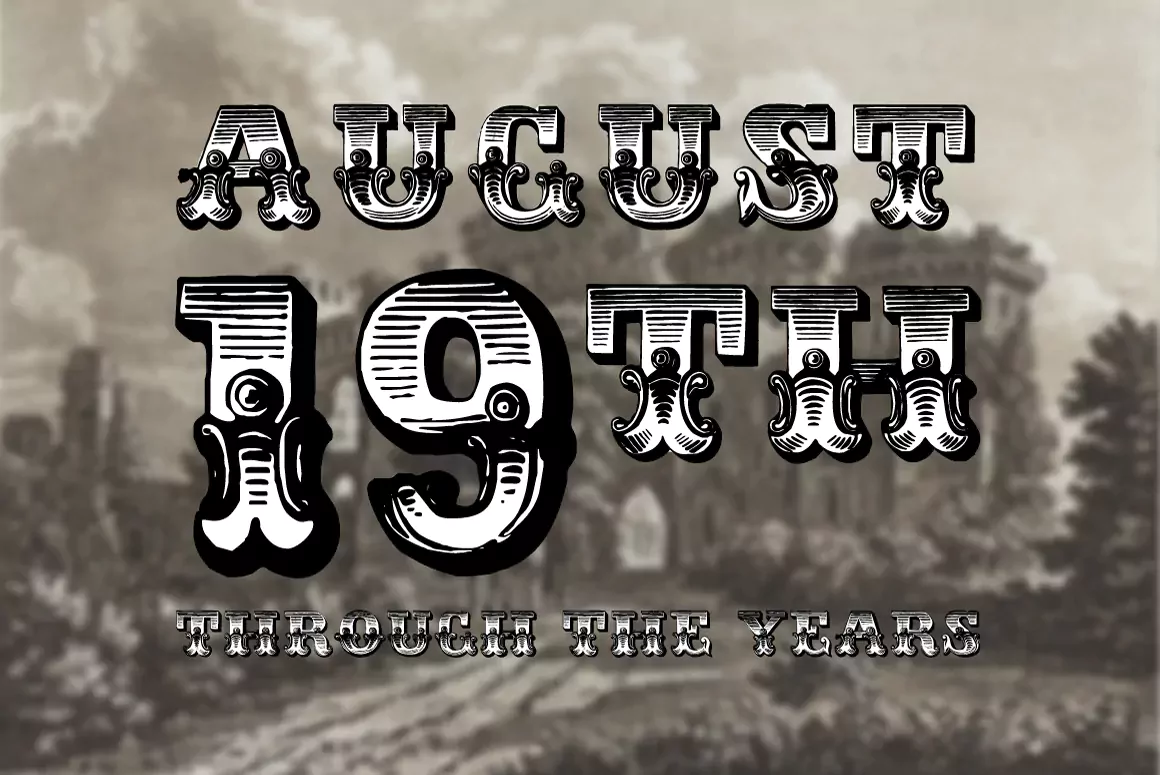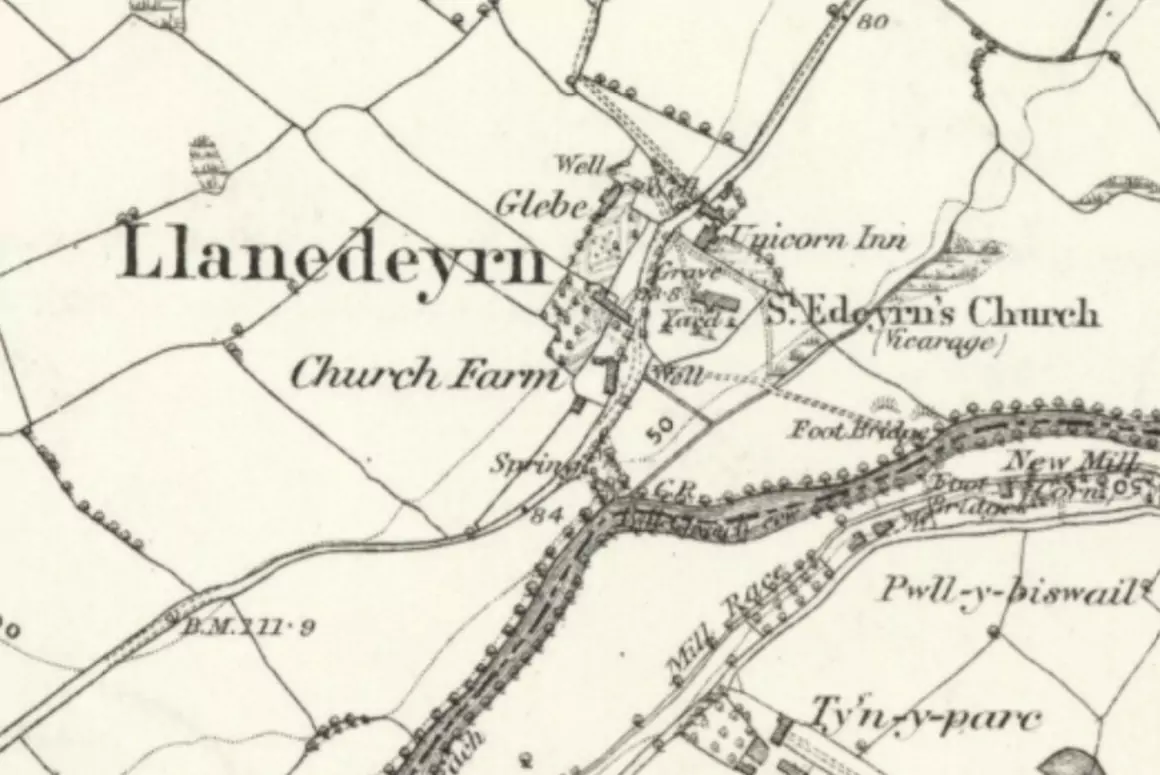![]()
There was an interesting piece in the Cambrian newspaper on 20 December 1872, which examined the origins of familiar Christmas traditions. The piece is unattributed, but it fits in with a well-established pattern in all nineteenth century newspapers, which published pieces by well-read locals, often vicars, who did their best to share their researches and their knowledge, especially of ancient mythology to promote the Christian message. These pieces are a really valuable resource and this one is no exception.
Let’s look at what it says about the holly, for example. The author tells us that a ‘more lovely tree than this in the depth of winter can scarcely be found’. As far as I am concerned, it is that thing that lies in wait for you in the garden, ready to stab you viciously in the fingers when you are picking up leaves, but then, as I grow older, the grumpier I seem to have become.

The holly, it seems, was dedicated by the Romans to Saturn in his festival was held between 17 and 23 December. This was when they did a lot of feasting and exchanged gifts. It was regarded as the best of times, when everyone was free – a time of liberty when masters provided table service for their slaves. One can but hope that such inexperienced hands didn’t spill too much of that precious gravy.

He also tells us that during the early persecution of the Christians, they hung a holly branch over their doors to ‘screen themselves from their persecutors, hence it has been continued by Christians to the present time’. I can’t help thinking that a determined persecutor would find his way past a branch without too many problems, but then I have rarely worn a toga so I am unfamiliar with the level of protection they afford.
This was the Saturnalia, which was later absorbed into our own indulgent mid-winter festival, ‘when every kind of immorality was indulged in’. Yes, even in a time before satellite television, they did find alternative ways to pass those dark winter days.
Our writer goes on to explore mistletoe at some length. He has a lot of time for mistletoe. In fact he seems quite enthusiastic about it.
‘What a charm there is about it; it should never be absent at Christmas-tide where merry damsels dwell’.
It had a far different reputation in Pagan times, when we are told, it was called ‘the baleful mistletoe’ and this was all to do with treacherous behaviour within the family of the Norse Gods. You see, the mighty Odin (otherwise known as Nimrod, the mighty hunter) had a favourite son named Balder and apparently it was common knowledge that Loki, the Spirit of Evil, was destined to kill him.
Now, before we all start to judge Loki, let’s consider the issues he had to deal with. You see once, when he took the form of a mare (as you do), Loki was impregnated by a stallion and gave birth to the eight-legged horse called Sleipnir. It would certainly make you a bit fractious. Probably had his own dedicated counselling team on permanent standby as a result, I shouldn’t wonder. Obviously, being the Spirit of Evil isn’t all it’s cracked up to be.
Anyway, Balder’s mother, Frigga, wasn’t too comfortable with the news of her son’s imminent demise and insisted that every object, animate and inanimate, to take an oath not to destroy or injure her son. Fire, water, rocks, and all vegetation signed up to the deal. They probably felt they had no choice.
‘One plant only, a parasite, the mistletoe, was overlooked. Loki knew it, and made the contemptible shrub the fatal weapon’.
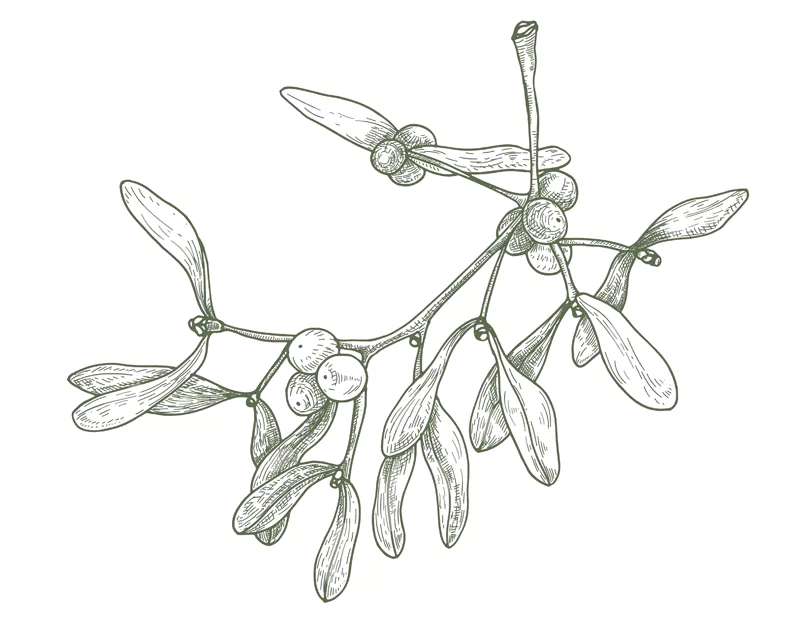
It seems that as a consequence of Frigga’s oath, the Norse Gods liked nothing better of an evening in Valhalla than to throw darts at Balder, who would bare ‘his charmed breast to their weapons’, secure in the knowledge that he couldn’t be harmed.
Well those northern evenings could be long and dark, and since they were supposed to be all-seeing and all-knowing, there had never been much point in inventing Cluedo.
At Thor’s midwinter feast, however, Loki gave a mistletoe dart to Hoder, Balder’s, blind brother, ‘and directing his aim, the fatal shaft flew and he became a fratricide’. Which just goes to show the inherent risks of being unable to choose your relatives.
Mistletoe was rehabilitated, to some extent anyway, as a consequence of its perceived medicinal qualities. In Wales it was acknowledged as a remedy for serious diseases like epilepsy. It also was believed to have come from Babylon and that it represented the Messiah. Essentially, and I do like to help wherever I can, it was a divine branch that came from Heaven and grew upon trees which naturally grew out of the ground. Now if you are following this, the mistletoe thus rejoined heaven and earth, which had originally been separated by sin. At last they had been reunited. The kissing therefore beneath the bough represented forgiveness and reconciliation. If you are struggling with that then don’t worry. So am I.
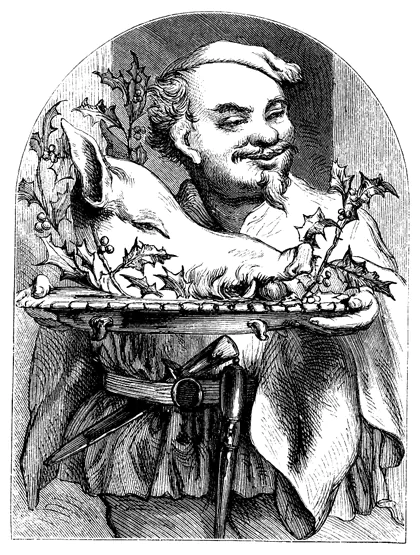
And all that drinking at Christmas? You know, the sort of the thing none of us approves of? That was something else that came from Babylon; the (midwinter) drunken festival of Baal. Apparently he is also the one to blame for all those lighted candles, which presumably includes those glittery tea lights with peculiar fragrances that come in a box and serve absolutely no purpose whatsoever.
The Christmas tree? Well, we weren’t the first to decorate trees. Others were there first. The fir tree was popular in ancient Rome and in Egypt the tree of choice was the palm. They must have looked really dull without the tinsel.
You need to know that the yule-log is the body of Nimrod restored to life. Obviously. Oh yes, and a boar was sacrificed to the Greek god Adonis for the injury it was believed the brute had once done him. Hence the boar’s head was welcomed as a suitable centre piece for a Christmas dinner. Except in our house, if I am honest.
As to the Christmas goose, it was always a favourite offering to the Egyptian god Osiris. In fact, when he was especially ratty he could only be pacified by a large goose and a thin cake. But then if you are a god you can apparently expect to be indulged. Perhaps it is just as well that Osiris was spared that annual battle with an over-loaded and recalcitrant supermarket trolley. A goose just wouldn’t have been enough.
At this point the writer expresses considerable regret at the pagan origins of some of our familiar traditions and then turns logic on its head by asserting that Christianity didn’t acquire all these traditions from other cultures at all. In fact, it was all part of a diabolical plot by Satan (what else?} to anticipate Christianity, in order ‘to subvert and corrupt the message, to materialise, carnalise, and degrade’. Whatever.
In football parlance, that is called getting your retaliation in first.
A merry Christmas and a peaceful new year to you all.


